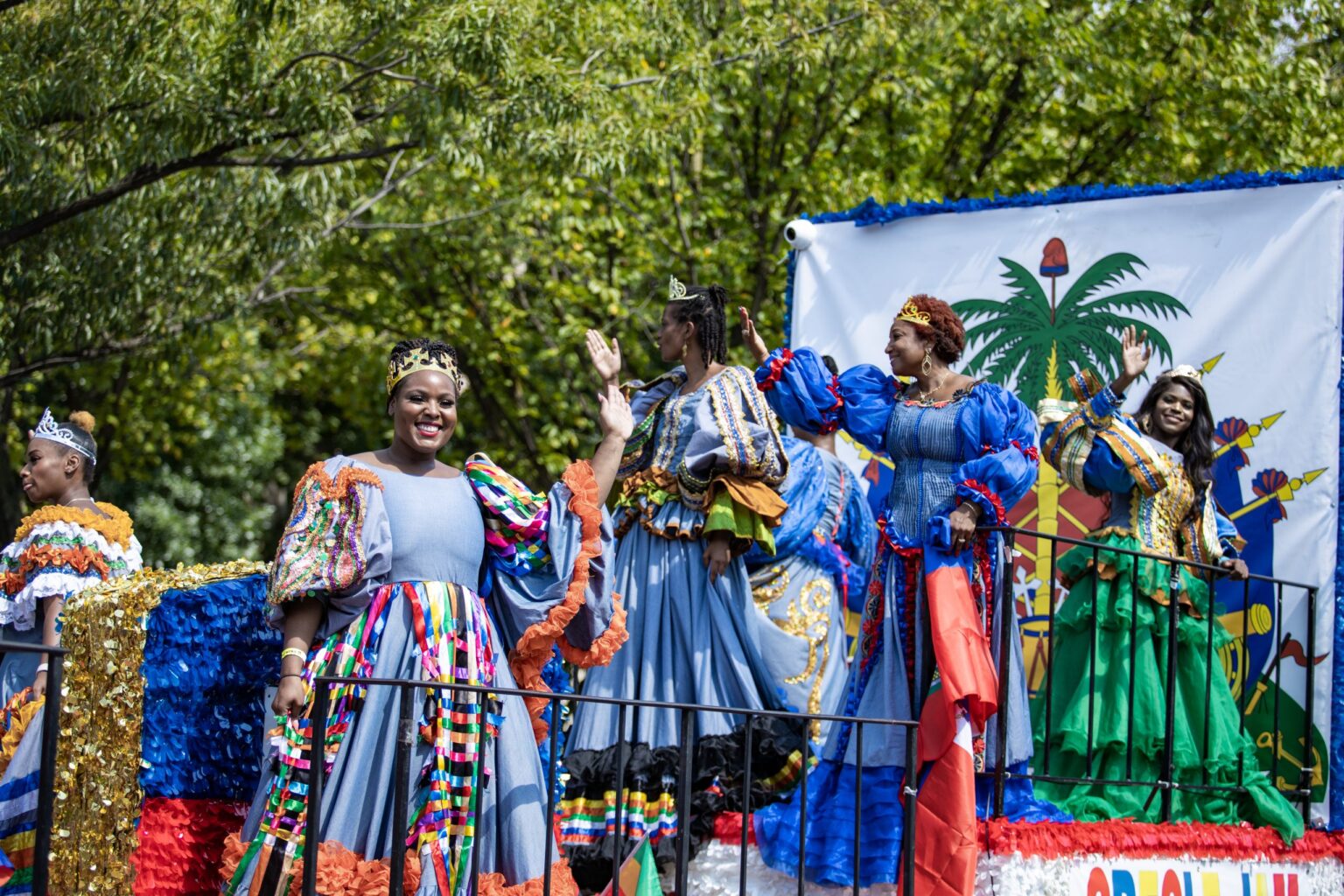Tensions Rise Over Haitian Participation in West Indian Carnival
In the heart of Brooklyn, where the Caribbean spirit thrives, a recent meeting has sparked controversy regarding the participation of Haitian bands in the West Indian American Day Carnival. The West Indian American Day Carnival Association (WIADCA), concerned about the significant Haitian presence in recent years, has introduced a last-minute rule potentially barring Haitian bands from the Parkway this year.
Upon arriving at the WIADCA’s modest office on Rogers Avenue, I was immediately struck by a large poster depicting a vibrant T-Vice float from 1999, a prominent feature on the front page of the NY Daily News. This image seemed to capture a proud moment for the Carnival committee, being the only visible representation of their past achievements on display.
The meeting commenced punctually at 7:30 PM, chaired by WIADCA President Mrs. Yolanda Lezama, alongside other board members. Despite the significant Haitian demographic in Brooklyn, none of the 20 board members are Haitian.
Representatives from the Haitian community included Fan Productions for Kreyol La, DJ Greg for Sweet Micky, a Beaubrun brother for Boukman Eksperyans, Haitians Times presumably representing Djakout, an unnamed individual for T-Vice, and Karen from Panthers’ Production, who has been attending these meetings since 1999.
The meeting covered general guidelines for the Carnival festivities, which include the Junior Carnival on Eastern Parkway the Saturday before Labor Day, and the annual events at the Brooklyn Museum, including the King and Queen competition. However, the list of participating bands and Mask camps did not include any Haitian bands, a fact that remained unaddressed until the end of the meeting.
As the meeting neared its conclusion, the absence of Haitian bands was brought up. Fan Productions inquired about the status of Haitian bands, only to be informed that no bands were officially banned but would need to wear costumes to participate. With the Carnival just a month away, this requirement was deemed impractical for bands accustomed to different traditions. The meeting room erupted in tension, with representatives from other camps expressing their frustration and calling for strict enforcement of the new rule.
In response to the heated exchanges, the committee decided to hold a separate meeting with the Haitian representatives. The new process requires Haitian bands to submit their mass camp addresses for inspection before being granted an application for a float. This contrasts with other bands that have already received permits without such scrutiny.
Despite not representing any bands personally, I voiced my frustration, insisting on receiving an application. Fan Productions and Panthers’ Production echoed this demand. After considerable negotiation, we were eventually given the applications, though the permits remain contingent upon further inspections.
The most disheartening moment came at the end of the evening when a Vice President of the committee suggested that Haitians should disrupt the Dominican or Puerto Rican parades instead of “messing up ours.” My response highlighted the inclusion of Haiti within the West Indies, but the comment and the poster of the T-Vice float left a bitter taste as I exited the office.
The situation underscores ongoing tensions and challenges within the Caribbean community in Brooklyn, revealing deep-seated issues of inclusion and representation in cultural events.
Article from the Daily News Paper
Parade ruffles feathers
By LESLIE CASIMIR
DAILY NEWS STAFF WRITER
The feathers are already flying at the West Indian-American Day Carnival Parade and it’s not even Labor Day.
The splashy Brooklyn event has banned marchers who aren’t in costumes, the Daily News has learned.
That means virtually no Jamaicans, Haitians or Barbadians – who usually are represented by their country’s top musical artists – will have a showcase on Eastern Parkway, critics of the new rules contend.
The organizers, many of whom are Trinidadian’s, say that the annual technicolor show is getting drab with all the “T-shirt bands” – revelers in T-shirts and regular clothes who follow flatbed trucks carrying musicians.
“It seems as if they’re trying to weed out a lot of people. They’re eliminating Jamaica and Haiti and other countries that don’t see it as a costume event, but as a music-driven event,” said Robert (Bobby) Clarke, president and CEO of Irie Jam radio station WTRN (93.5 FM).
But Jean Alexander, a spokeswoman for the West Indian-American Day Carnival Association, which organizes the annual Labor Day event, said there is no attempt to keep anyone out.
“We’ve been telling people this for the last three years, but they have never listened. The non-costumed bands have overtaken the carnival. It has destroyed carnival and we’re through talking,” Alexander said. “This rule is not meant to exclude, it is just forcing people to go back to their roots.”
Millions of people gather annually for the celebration of West Indian culture. Many plunk down hundreds of dollars for elaborate costumes of sequins and feathers to be part of an organized procession, called Mas bands. But others just find their favorite bands and join the march, following the truck in street clothes.
“I respect them [the organizers], but at the same token they are being insensitive to the people who don’t have the traditional aspect of costume,” said Irwine Clare, an activist in the Jamaican community.
